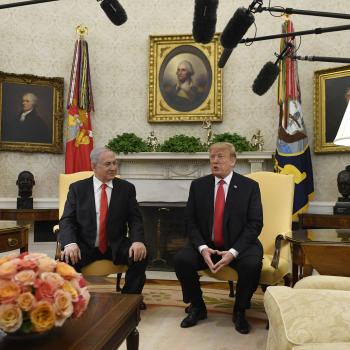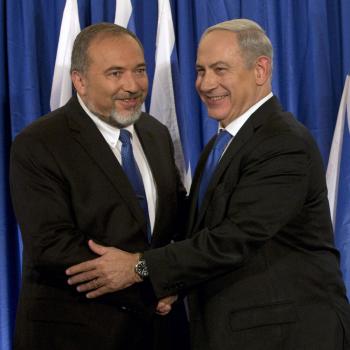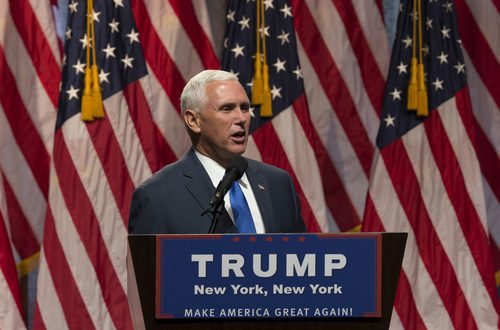By Shalom Goldman, Duke University
A few days after the United Nations voted overwhelmingly to raise the status of Palestine to a “nonmember observer state,” the Rabbis and directors of a New York synagogue caught the attention of the national media by issuing a statement praising the UN for the vote. The Israeli government had, of course, condemned it. In an email message to the members of their large (2000-plus) congregation, Rabbis Rolando Matalon, Marcelo Bronstein and Felicia Sol of B’nai Jeshurun on Manhattan’s Upper West Side wrote that, “the vote at the U.N. yesterday is a great moment for us as citizens of the world. This is an opportunity to celebrate the process that allows a nation to come forward and ask for recognition…Remember the crucial note that diplomacy played in achieving independence for the state of Israel.”
This statement, so daring and unusual in the context of decades of “synagogal silence” about Israeli policy toward the Palestinians, was soon modified and weakened, though not fully retracted. As the Israeli newspaper Haaretz put it, “the Rabbis backtracked. In an unusual mea culpa, the three Rabbis sent a note to congregants all but pleading for forgiveness” (Haaretz, “N.Y. Shul Rabbis,” Dec. 6). In their apology the Rabbis, stung by criticism, wrote that their first message was “an incomplete and unedited draft…that resulted in a tone which did not reflect the complexities and uncertainties of this moment.” The outcry against their statement, both within their congregation, and from members of the organized American Jewish community, and from Israeli pundits, was so loud and vehement that they could not withstand the pressure. In essence they recanted. And in our technological age, recanting comes quickly. Not after a couple of years, as in the case of the political prisoners of the past, but after a couple of days.
These Rabbis thought that they would be able to lead their congregants on Israel, rather than follow the consensus that Israel is always right, for two apparent reasons. Their synagogue, one of New York City’s most politically progressive and vibrant, does not have a formal affiliation with a Jewish denomination (though in matters of ritual they are closest to Conservative Judaism). Thus they are not bound by the discipline of the Orthodox, Conservative, or Reform movements, each of whom are continually vying to be more “pro-Israel” than the other.
Secondly, and perhaps more significantly, B’nai Jeshurun’s Rabbis are not American-born and trained. With a few brave exceptions, American-trained Rabbis know better than to use their pulpits to take a stand critical of Israel. B’nai Jeshurun’s Rabbis are the products of the Seminario Rabinico Latinoamericano, a Conservative Jewish seminary founded by Rabbi Marshal Meyer, in the 1970’s. Their seminary has a proud tradition of speaking truth to power. Rabbi Meyer and his students were determined opponents of the Argentinian military regimes “dirty war” against the Left between 1976 and 1982. One of the great opponents of the Argentine Junta, newspaperman Jacobo Timmerman, wrote a moving book about his ordeal in an Argentine military prison. That book, Prisoner Without a Name, Cell Without a Number was dedicated to Rabbi Meyer, who, in Timmerman’s words “brought solace to Jewish, Christian, and atheist prisoners.”
After democracy returned to Argentina, Rabbi Meyer moved to NYC and became the Rabbi of B’Nai Jeshurun. There he was an outspoken advocate for liberal causes – especially for gay rights and for political rights for the Palestinians living under Israeli rule. Meyer died in 1993 and Rabbi Matalon and his associate Rabbis attempted to carry on his liberal legacy. But now, twenty years after Meyer’s death, they have over-reached, and they have misread the liberalism of their congregants and of the “official” American Jewish community, who are willing to embrace and defend all liberal causes, with the exception of Palestinian rights. American Jews may have voted for Obama, but if they had the right to vote in Israeli elections there is no doubt that they would vote for Netanyahu, who promoted Mitt “Moshe” Romney’s candidacy.
When the Rabbis recanted they wrote that “we regret the feelings of alienation that resulted from our letter.” I don’t think that Rabbi Marshall Meyer would have written such a note to his many Argentinian Rightist critics, some of whom threatened his life, and not only his livelihood. How did this stifling American Jewish consensus on Israel emerge? To some extent it was there in 1948 when Israel was established, but it solidified in the wake of the 1967 Arab-Israeli war. And since the rise of the Israeli Right in the late 1970’s, and its resurgence under Netanyahu’s stewardship in the 1990’s, the hard-liners and hawks dominate the American Jewish conversation. Over the decades between 1967 and 2012 a series of peace-oriented American Jewish organizations have emerged. In the 1970’s – Breira, and since then Americans for Peace Now, Brit Tzedek, and today JStreet – but these groups cannot attract the money and influence that the major Jewish organizations and the Jewish denominations do.
In the first few years after the 1967 war the mood of American Jews – at least as expressed by the major Jewish organizations, Rabbinical Seminaries, and denominations — was that of euphoria. Israel had won “the Six-Day war” (as it had been dubbed by Israeli General Moshe Dayan) and had “liberated” areas of Jordan, Egypt and Syria. This euphoria was, to some extent, a reflection of the feeling expressed by Israeli Jews after winning a conflict that threatened the existence of the state. Within Israel this phase of exultation and braggadocio abated within a few years – especially after the 1973 war, and for some, but not all Israelis, a more pragmatic view of their political-military situation dampened the nationalistic fervor. The realization that “the territories” were populated with hundreds of thousands of people with their own political and nationalist aspirations began to dawn on Israelis. But this realization did not dawn on the American Jewish leadership. To the contrary, their thinking about Israel remains rooted in their understandings of the 1948 and the 1967 Arab-Israeli Wars, not in the realities of the past half century.
While some on the Israeli left expressed moral outrage at the treatment of the occupied Palestinians, much of the emerging opposition to the occupation of people was pragmatic rather moralistic. Hebrew University Professor Yeshayahu Leibowitz, an eloquent opponent of Israeli government policies long before the 1967 “pre-emptive strike” against Egypt that opened the “Six Day war” wrote in 1976, the ninth year of the occupation, that
Shortly after the Six Day war, when most of the Israeli public (and a good part of Jewry in the Diaspora) were overcome by the intoxication of national pride, military arrogance, and fantasies of the glory of messianic deliverance, I expressed, both orally and in writing, my concern lest the great victory that led to the conquest (or “liberation”) of the entire territory of the historical Eretz Israel (with the addition of the Sinai peninsula) prove in the course of history to have been the event initiating the process of the decline and fall of the state of Israel. At the time these words evoked much anger. Today, after the 1973 (Yom Kippur) war and the ensuing developments, including the peace with Egypt, many people refer to those concerns, and many also remark that my fears are being justified.
Thus within Israel, opposition to the occupation of these territories and to the subjugation of their populations to military control was forcefully expressed by many pundits, military analysts and academicians. Leibowitz, perhaps the most outspoken, was one of scores of articulate critics of Israeli policy towards the Palestinians. By the mid 1980’s he was joined by a number of ex-military commanders. Yehoshafat Harkabi, former head of Israeli military intelligence and later a professor of international relations at Hebrew University, criticized Defense Minister Ariel Sharon’s policies towards the Palestinians in the West Bank:
Of course we are not wholly responsible for the worsening of our political-military situation,” he wrote. “But self-criticism is essential if we are to overcome a tendency to self-righteousness, a tendency which results from Jewish approaches to history, from our historical experience, and from the ‘ethos’ of self-righteousness as promoted by Prime Minister Begin. In my opinion, there is no greater threat to our survival than this ethos of self-righteousness. It renders us blind and unable to understand our situation — and it gives legitimacy to bad national leadership.
Despite the rightward swing in Israeli political life, criticism of government policy is not a thing of the past. In ‘The Gatekeepers,” a remarkable film documentary released last month, six former heads of the Shin Bet—the state security service – are interviewed. Without exception, these six former guardians of Israel share the view that the actions of their own government towards the Palestinians in the Territories endangers the future of the state. As the LA times described it, the Gatekeepers “share a belief that a Palestinian state should have been a priority, linked to a kind of disdain for Israeli politicians for not doing more to make it happen.” (LA Times, Nov 27th)
Nowhere was this Israeli Jewish call from self-criticism and opposition to Israeli policies towards the Palestinians treated with greater contempt than in “official” Jewish circles in the United States. Over the past five decades every attempt was made to deny these oppositional voices a stage in the U.S. Their books and articles were shunned, and pulpits and podiums at synagogues and Jewish community centers were denied to them. Israeli newspapers, such as Haaretz, that voiced criticism of Israel’s policies and of the West Bank settlements the government enabled and supported, were decidedly “unkosher” for synagogue affiliated Jews. Rabbi and academician Arthur Hertzberg, one of the few American Rabbis who spoke of the threat that Israeli government support of the Settler movement constituted for the future of the Jewish State , quipped in the 1980’s that if Haaretz had been published in New York City, the Jewish community would long ago have burned down the presses. And for many establishment Jews, if Haaretz was unacceptable, The New York Times, with its attempts at balanced reporting from Israel, was even worse. Under the leadership of its prominent Rabbi one New York City congregation “boycotted” The Times for years. If the “newspaper of record” couldn’t reassure the faithful that Israeli actions were always justified, and that therefore its government’s policies were unassailable, the paper was not to be trusted.
B’nai Jeshurun’s Rabbis, 45 years after the 1967 war, were attempting to confront the consequences of this censorship and deliberate ignorance head on. Sadly, they failed. Their action was too little, and forty years too late.
Shalom Goldman teaches in the religious studies department at Duke University. His published books include God’s Sacred Tongue: Hebrew and the American Imagination.












